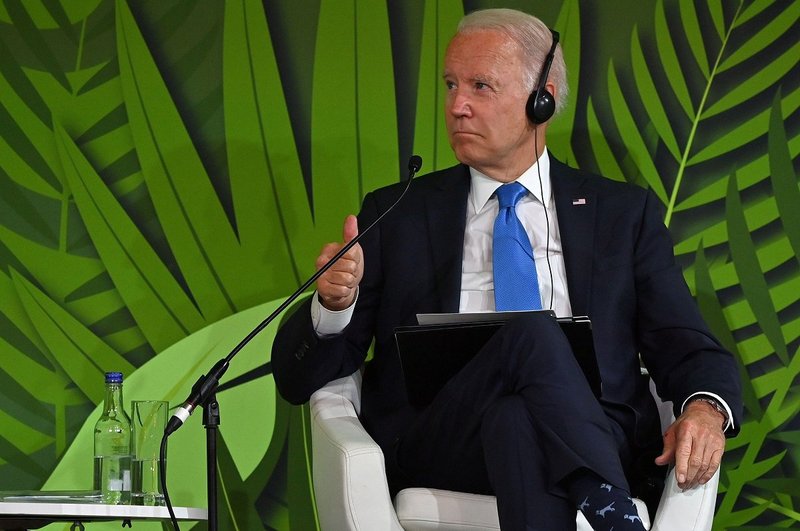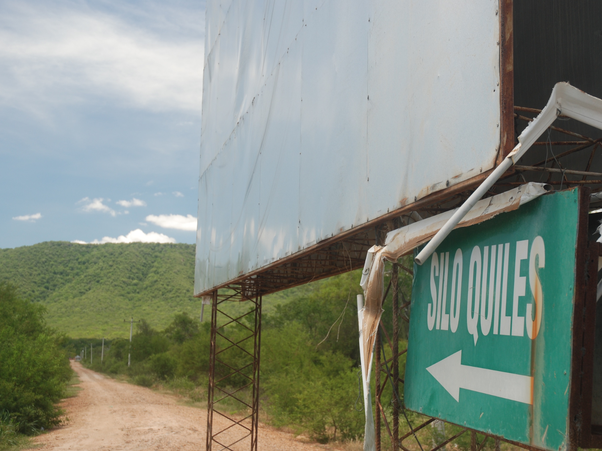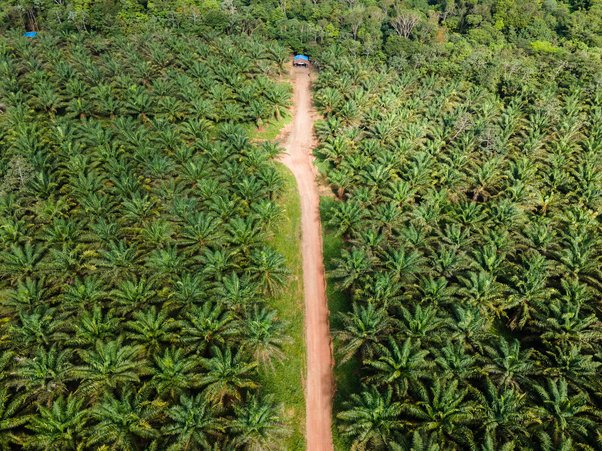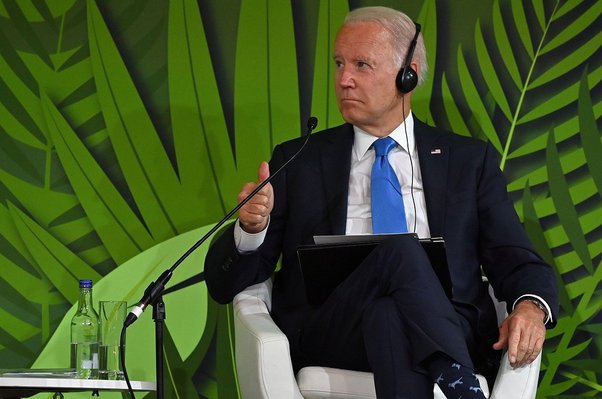This year could see the US move to finally prioritize action on global deforestation. President Biden campaigned on the issue, and the newest Congress is signaling a willingness to tackle trade and foreign policy, which could provide a platform to progress laws at the intersection of climate, nature, and biodiversity.

Paul Ellis - Pool/Getty Images
Crucially, the start of the Lula administration in Brazil is renewing hopes for effective global partnerships to protect the Amazon rainforest (read more about this in our blog here).
There is a real risk to the US and to global forests if the US fails - and trade and financial flows must be at the top of the to-do list.
US companies and financiers engage with businesses at high risk of deforestation and human rights abuses. Up to 40% of US GDP is generated from sectors with companies that contain high risk of exposure to climate-related forest, food, and land use risks, including deforestation. In 2020 the US imported over $5 billion worth of raw commodities and derivatives directly from countries with a high risk of illegal deforestation.
For the US to be serious about confronting global deforestation, we’re calling on Congress and the Biden administration to take the issue head-on in two major ways: passing binding regulation to end the import of deforestation-causing products into the US, and preventing the outflow of finance from the US to drive further deforestation abroad.
These actions are doable – and there’s a window of opportunity to make it happen this Congress.
Last spring, President Biden issued an Executive Order on Strengthening the Nation's Forests, Communities, and Local Economies that set various agencies to work to develop and present a plan to halt and reverse forest loss and degradation by 2030 or earlier. Most recently, Global Witness provided recommendations to the US State Department’s request for input on a ‘whole of government’ response to deforestation. At COP26, the US announced up to $9 billion in funding for efforts to combat deforestation and restore forests abroad.
As a first step, we recommend Congress strengthens and passes the FOREST Act.
The FOREST act prevents the import of products derived wholly or in part from illegally deforested land – like cattle, palm oil, soybeans, rubber, wood pulp, and cocoa. Importers would need to prove their products are deforestation-free, including through more transparency and higher quality reporting in their supply chains.[1]
The FOREST Act would also create a fund, through a process led by the US Trade Representative, to develop action plans in concert with countries identified as high-risk for sourcing of products derived from illegal deforestation.
This would put the US on track to catch up to existing global efforts, including the EU law on deforestation that is set to formally pass this year. However, the FOREST Act still falls short of the EU’s law in a few important ways.
The EU’s law will cover both legal and illegal deforestation. This approach ties the outcomes of the law to a standard environmental threshold rather than to local laws that may shift under new leadership, like the changes to Brazilian forest law shortly after Bolsonaro took office in Brazil.
Similar to the EU definition for forests that will take effect after one year, the FOREST Act includes “other wooded land” under its definition of forests. This would likely allow the law to cover vital ecosystems like the Cerrado in Brazil.Additionally, the EU’s law applies to a longer list of covered products than those proposed in the FOREST Act.
The most important limitation of the FOREST Act is that it focuses on importers and overlooks the role of Wall Street from financing deforestation abroad.
While both the EU and the UK are considering legislation that would confront the role of finance in driving deforestation, no jurisdiction has formally passed a law. This is an area where the US could influence the direction of global progress and show true leadership.
Absent binding regulations, the financial sector relies on non-binding commitments to reduce exposure to climate and deforestation risk sectors – an approach that has woefully failed to meet the scale or scope of the challenge at hand. For example, in November 2022 Global Witness reported that 360 asset managers and owners in the Glasgow Financial Alliance for Net Zero (GFANZ) retained forest-risk investments worth an estimated $8.5 billion, marking only a 3% decrease since their net-zero commitments made in September 2021.
Furthermore, several US based financial institutions in the alliance were found to increase their exposure to deforestation-risk investments over the same period. One of these institutions, Vanguard, has since announced their exit from GFANZ entirely.
Industry-led approaches are a smokescreen for inaction, severely undermining the effectiveness of foreign aid provided to protect the world’s forests.
The fight against deforestation also offers the US a means to reshape the way global partnerships are formed. The US should defend and respect local and international human rights law. Indigenous communities play an indispensable role in protecting forests and other ecosystems but are rarely invited to the negotiating table. The US should be sure to include them as it plans next steps.
Only then can we confront how agricultural expansion drives land-grabbing, conflict, violence, and other abuses disproportionately perpetrated against Indigenous peoples. The US relationship with the Lula administration in Brazil could be an important litmus test for environmental justice.
A revamped FOREST Act is a priority for this Congress. To be world leading, it must draw on the knowledge and experience of Indigenous communities and include both importers and the financial institutions driving forest destruction abroad.
[1] Under the FOREST Act, importers of covered products would be required to show “reasonable care to assess and mitigate the risks that any covered commodity used to make the covered product was produced from land subject to illegal deforestation on or after such date of enactment.”
For countries identified as needing an action plan to confront deforestation, importers would not be allowed to import any covered product unless they can show: (1) supply chain and point of origin, (2) steps they’ve taken to assess and mitigate the risks.


